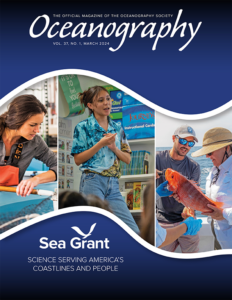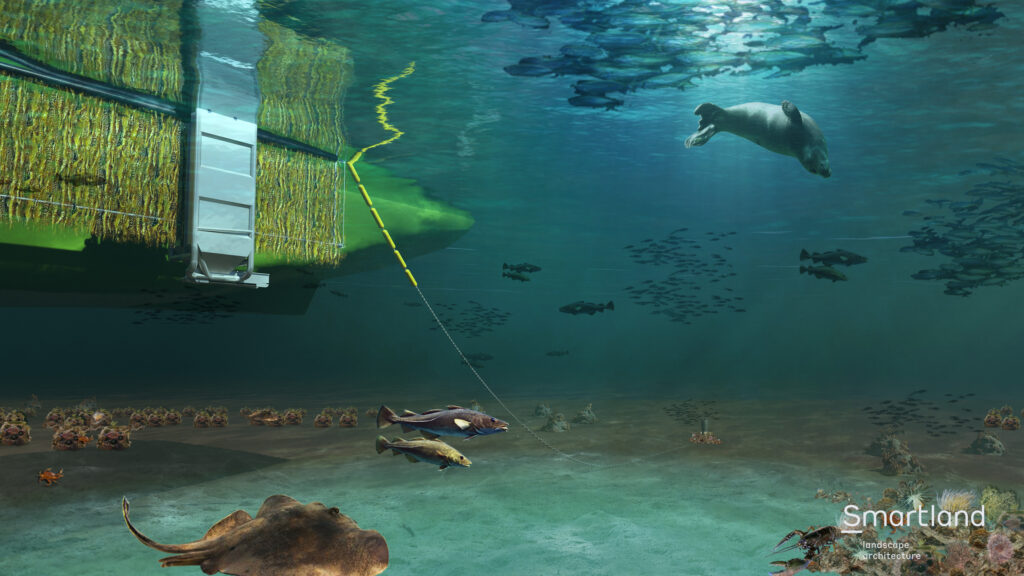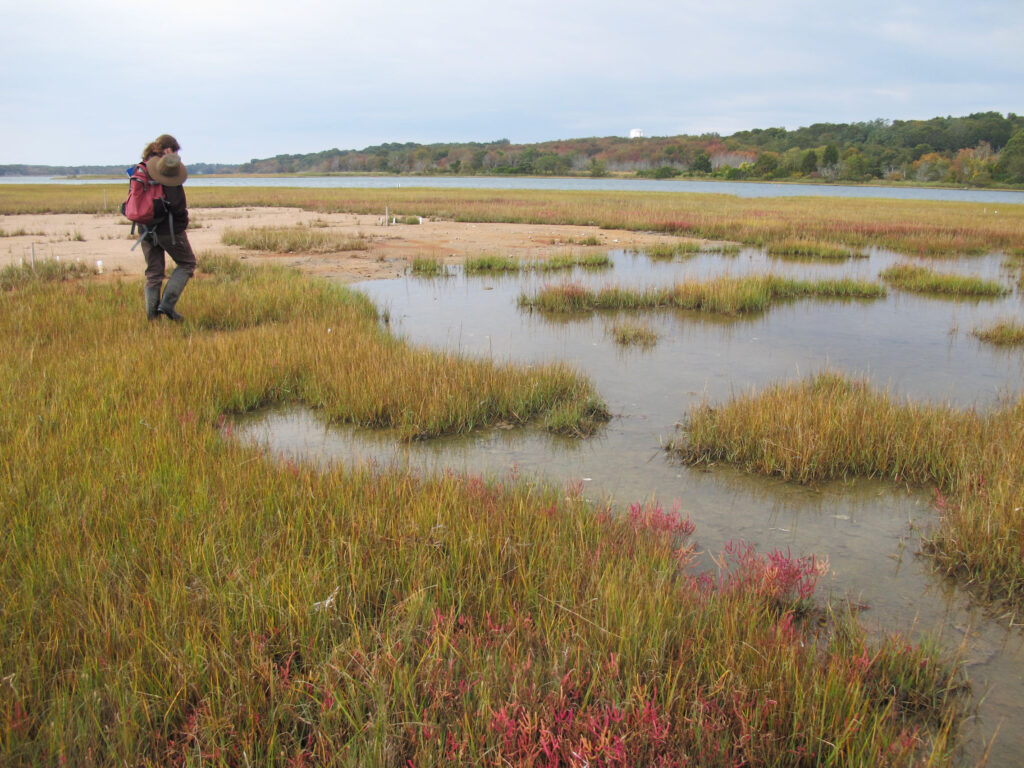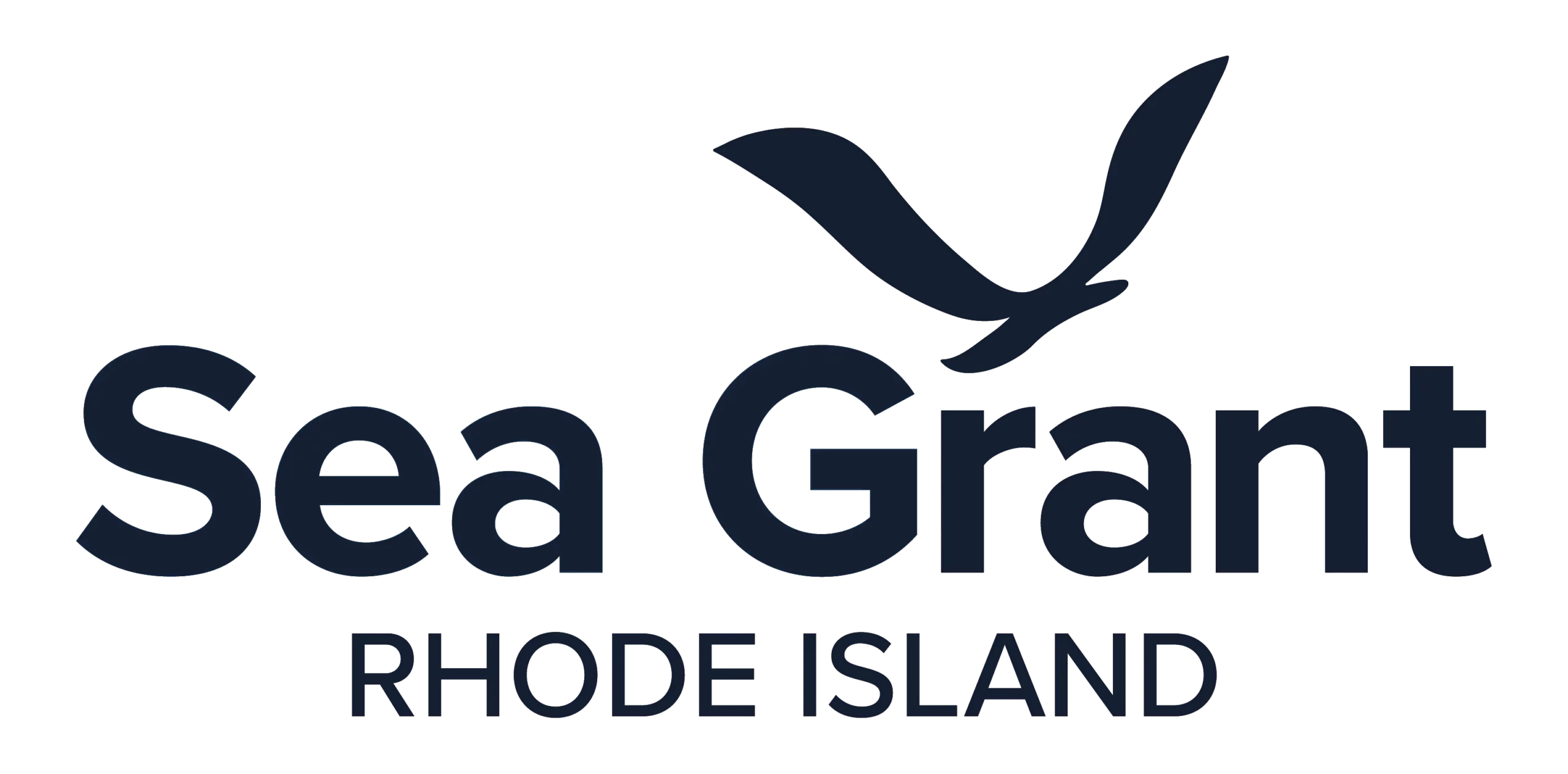 Oceanography has recently published a special issue on “Sea Grant: Science Serving America’s Coastlines and People.”
Oceanography has recently published a special issue on “Sea Grant: Science Serving America’s Coastlines and People.”URI Coastal Resources Center/Rhode Island Sea Grant’s Jennifer McCann and Sue Kennedy contributed a piece to this special issue entitled “Multi-Use as the Next Iteration of Ecosystem-Based Management Planning and Implementation.”
In it, they describe the growing conversations around ways to promote the compatible and even mutually beneficial uses of marine spaces, envisioning a future where “one day, a marine farmer, commercial fisherman, or a charter captain could potentially save time and make money by using information collected by sophisticated instrumentation located on turbines and in leased areas. Wind farms, potentially, could enhance their community visibility via partnerships that embrace turbine infrastructure as scaffolding for ocean food production.”
Sea Grant/CRC is participating in these conversations.

Image courtesy of Smartland Landscape Architecture: Computerized rendering visualizing the underwater appearance of a specially developed seaweed-harvester.
McCann and Kennedy write: “A Sea Grant/Coastal Resources Center effort is assisting Rhode Island and Northeast region ocean collaborators to flex their cooperative [multi-use] muscles as one of the five multi-use case studies undertaken by the global Belmont Forum MULTIFRAME initiative. The case study … enable[s] government regulators, coastal and ocean practitioners, academics and students, community members, advocacy groups, and representatives of a broad range of coastal and ocean industries … to begin thoughtful, if often difficult, conversations envisioning an MU future for the Northeast.”
There is also a “Cooperative Research and Development Agreement between NOAA and the University of Rhode Island [that] is advancing collaborative research on and ocean planning solutions to the interactions of offshore wind energy development and other maritime uses.”
Pam Rubinoff, also of the URI Coastal Resources Center/Rhode Island Sea Grant, is a co-author on another article on how Sea Grant programs help communities build resilience to coastal climate hazards, including how Rhode Island Sea Grant connected emergency managers, planners, and researchers to develop flood modeling to assess critical infrastructure in Naval Station Newport and in surrounding municipalities.

Wetlands capture carbon, but using state-owned wetlands in carbon offset markets presents a number of legal questions, according to research by the Rhode Island Sea Grant Legal Program. Photo by Keegan Glennon, URI.
Research from the Rhode Island Sea Grant Legal Program at the Marine Affairs Institute at Roger Williams University School of Law on legal issues affecting blue carbon projects on publicly-owned wetlands is included in the article “Sea Grant at the Blue Carbon Frontier: Integrating Law, Science, Community Values and Economics.”
This issue of Oceanography is publicly available and features Sea Grant work in co-production of knowledge, workforce development, fostering resilient communities, aquaculture, environmental literacy, ecosystem-based management, and more.
Rhode Island Sea Grant is a member of the national Sea Grant network, which consists of federal-university partnerships between the National Oceanic and Atmospheric Administration (NOAA) and 34 university-based programs in every coastal and Great Lakes state, Puerto Rico, and Guam.
